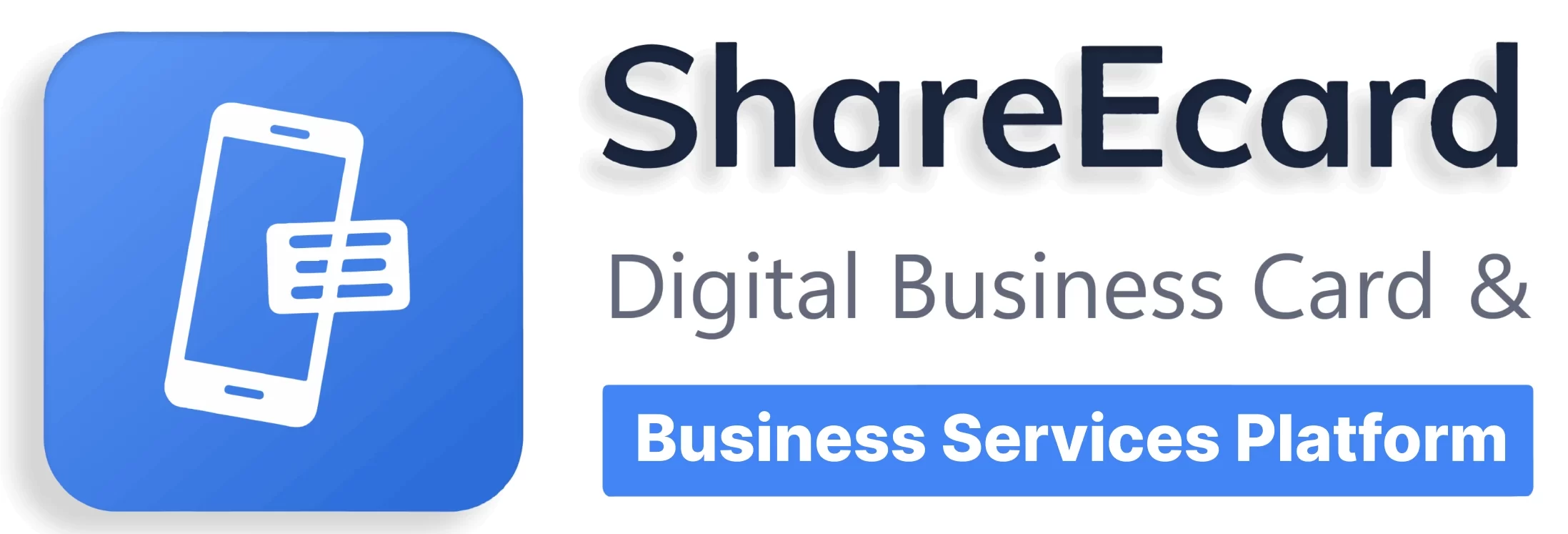The rise of digital media has revolutionized the way we consume content, opening a plethora of opportunities in the videography business. With a growing demand for high-quality video content across various industries, there’s never been a better time to start a videography business. Here are 10 videography business ideas that are particularly promising in the current market.
10 Videography Business Ideas You Should Know
1. Wedding Videography
Weddings are momentous occasions, and couples are increasingly seeking skilled videographers to capture their special day. Wedding videography not only requires technical skills but also an artistic touch to create memorable, emotive videos.
What You Need:
- High-quality video equipment and editing software.
- An eye for detail and a creative storytelling approach.
- Good interpersonal skills to work with clients and guests.
Implementation:
- Develop a portfolio showcasing your style and quality of work.
- Offer various packages to suit different budgets and preferences.
- Build relationships with wedding planners and venues for referrals.
- Stay updated with the latest trends in wedding videography.
In conclusion, wedding videography is not just about capturing moments; it’s about telling a love story through your lens. With your creativity, technical skills, and ability to connect emotionally, you can create beautiful, lasting memories for couples. This business requires not only talent but also empathy and dedication to deliver a product that will be cherished for a lifetime.
2. Corporate Event Filming
Corporate events, conferences, and seminars provide opportunities for videography services. Companies often seek professionals to record these events for training, promotion, or archival purposes.
What You Need:
- Professional-grade video equipment suitable for different event sizes.
- Understanding of corporate branding and messaging.
- Ability to capture key moments and produce polished final products.
Implementation:
- Network with corporate event planners and business associations.
- Offer live-streaming services for wider audience reach.
- Create a diverse portfolio to showcase your versatility.
Corporate event filming goes beyond just recording; it’s about capturing the essence of the brand and the event’s atmosphere. With a keen eye for detail and an understanding of corporate culture, you can deliver videos that not only document but also enhance the corporate event experience. This venture requires adaptability and a professional approach to meet the expectations of corporate clients.
3. Real Estate Videography
The real estate market increasingly relies on video tours to showcase properties. Real estate videography offers a dynamic way to present homes and commercial spaces, making it a lucrative niche.
What You Need:
- Equipment capable of capturing high-resolution, stable footage.
- Skills in aerial videography (e.g., drone operation) for exterior shots.
- Ability to highlight property features in an engaging way.
Implementation:
- Collaborate with real estate agents and property developers.
- Offer virtual tour services for remote viewing.
- Use creative angles and shots to enhance the appeal of the properties.
Real estate videography is about creating a visual experience that entices potential buyers or renters. Your ability to showcase properties in their best light, highlighting key features and the feel of the space, can greatly influence the success of real estate listings. This field requires a blend of technical proficiency and an eye for aesthetic detail to produce compelling visual content.
4. Instructional Video Production
There’s a growing demand for educational and instructional videos across various fields. This niche involves creating informative and engaging content that educates viewers on specific topics.
What You Need:
- Ability to present information clearly and engagingly.
- Skills in scriptwriting and storyboarding.
- A knack for simplifying complex subjects visually.
Implementation:
- Partner with educational institutions, online educators, or businesses.
- Create concise and visually appealing instructional content.
- Keep up with educational trends and learning methodologies.
Instructional video production is more than just imparting knowledge; it’s about creating an engaging learning experience. Your talent in transforming complex information into easy-to-understand visual narratives can make learning more accessible and enjoyable. This area requires a balance of educational insight and creative presentation skills.
5. Travel Vlogging
Travel vlogging allows you to explore and share the beauty of different cultures, landscapes, and experiences. It’s a way to engage an audience with compelling stories and visuals from around the world.
What You Need:
- Portable, high-quality filming equipment.
- A strong on-camera presence and storytelling ability.
- Skills in video editing and content marketing.
Implementation:
- Build a strong online presence through social media and video platforms.
- Collaborate with travel agencies, tourism boards, or brands.
- Create content that resonates with and inspires your audience.
Travel vlogging is not just about visiting exotic locations; it’s about bringing stories to life through your lens. Your ability to capture and share the essence of different places and cultures can inspire and inform a wide audience. This business idea requires a passion for travel, cultural sensitivity, and a flair for engaging storytelling.
6. Event Highlight Reels
Event highlight reels capture the essence and excitement of various events, from concerts and festivals to product launches and grand openings. They offer businesses and organizers a dynamic way to showcase event highlights, engage audiences, and promote future events.
What You Need:
- Comprehensive understanding of event dynamics, themes, and objectives.
- High-definition cameras with varying lenses for diverse shots (wide-angle, close-ups, etc.).
- External microphones and audio recording equipment to capture clear event sounds.
- Tripods, stabilizers, and other accessories for steady and dynamic filming.
- Licensing and permits for recording in different venues and event locations.
Implementation:
- Conduct pre-event site visits to plan camera placements, lighting adjustments, and audio setups.
- Collaborate with event organizers to create a shot list, focusing on key moments, performances, and interactions.
- Edit footage promptly, incorporating transitions, music overlays, and graphical elements to enhance the highlight reel’s flow and impact.
- Provide clients with multiple versions of the highlight reel (full-length, short clips, teaser trailers) optimized for various platforms and promotional purposes.
Event highlight reel videography provides a vibrant visual summary of events, capturing memorable moments, and creating promotional content for future engagements. By emphasizing dynamic editing, engaging visuals, and strategic promotion, you can offer valuable content that enhances event experiences and extends their reach.
7. Music Video Production
Music video production allows artists and bands to visually represent their songs, convey messages, and connect with audiences through compelling narratives and visuals. It’s a creative collaboration that blends music, storytelling, and cinematography to create memorable visual experiences.
What You Need:
- Detailed script or storyboard outlining visual concepts, scenes, and transitions.
- Versatile locations, props, costumes, and makeup artists aligned with the music video’s theme.
- Lighting equipment, gels, and diffusers for creating desired moods and visual effects.
- Specialized equipment like cranes, dollies, or gimbals for fluid camera movements.
- Post-production software for color grading, visual effects, and audio synchronization.
Implementation:
- Conduct pre-production meetings with artists to align on vision, performance styles, and creative inputs.
- Organize rehearsals to synchronize performances, camera movements, and scene transitions.
- Incorporate feedback loops during post-production, allowing artists and stakeholders to review and provide inputs on draft versions.
- Optimize the final video for various platforms, ensuring quality, format compliance, and effective audience engagement.
Music video production offers a platform for artistic expression, storytelling, and visual creativity. By aligning with musicians’ visions, leveraging cinematic techniques, and prioritizing collaboration, you can create music videos that resonate with audiences and amplify artists’ voices and messages.
8. Documentary Filmmaking
Documentary filmmaking delves into real-world issues, stories, and perspectives, providing audiences with insightful, informative, and impactful content. It’s a powerful medium to explore, educate, and advocate for various topics, ranging from social issues and environmental concerns to historical events and cultural phenomena.
What You Need:
- In-depth research resources, including books, articles, interviews, and archival materials related to the documentary’s topic.
- Access to diverse interview subjects, experts, community members, or stakeholders sharing varied perspectives.
- Mobile filming equipment for on-the-go shooting, capturing spontaneous moments, and authentic interactions.
- Post-production capabilities for editing, adding subtitles, incorporating graphics, and enhancing audio quality.
- Legal advice and clearances for using copyrighted materials, sensitive content, or filming in restricted areas.
Implementation:
- Develop a structured filming schedule, balancing interviews, observational footage, and key event coverage.
- Establish trust and rapport with interview subjects, ensuring comfort, authenticity, and candid responses.
- Integrate feedback from preview screenings, adjusting content, pacing, or narrative structures as needed.
- Promote the documentary through film festivals, community screenings, online platforms, and educational institutions to maximize reach and impact.
Documentary filmmaking offers a platform to explore, educate, and inspire audiences through in-depth storytelling, research, and visual representation. By approaching topics with integrity, empathy, and creativity, you can create documentaries that inform, engage, and foster meaningful conversations.
9. Commercial Advertising Campaigns
Commercial advertising campaigns leverage videography to promote products, services, brands, or messages effectively. They combine marketing strategies, creative concepts, and visual storytelling to engage audiences, drive sales, and enhance brand recognition and loyalty.
What You Need:
- Creative briefs, marketing strategies, and brand guidelines from clients or advertising agencies.
- Access to talent agencies, models, actors, or influencers suitable for commercial roles.
- High-quality equipment for capturing product details, demonstrations, and promotional messages.
- Post-production capabilities for adding branding elements, calls-to-action, and ensuring message alignment.
- Distribution channels, media buying strategies, and promotional partnerships to maximize campaign exposure.
Implementation:
- Collaborate with marketing teams to integrate product features, benefits, and unique selling points effectively.
- Develop a shooting schedule, ensuring optimal use of locations, talent, and resources.
- Conduct audience testing or focus group sessions to gather feedback and refine the commercial’s content or messaging.
- Monitor campaign performance, leveraging analytics, viewer feedback, and sales data to evaluate impact and optimize future strategies.
Commercial advertising campaigns in videography blend creativity, strategy, and visual storytelling to promote brands, products, or messages effectively. By aligning with advertising objectives, understanding target audiences, and prioritizing creative excellence, you can create campaigns that resonate, engage, and drive desired outcomes.
10. Educational Video Content Creation
Educational video content creation provides learners with engaging, accessible, and effective learning resources across various subjects, disciplines, and levels. It’s a valuable tool for educators, institutions, and online platforms to enhance learning experiences, facilitate understanding, and cater to diverse learning preferences.
What You Need:
- Curriculum outlines, learning objectives, and educational content frameworks from educators or institutions.
- Interactive tools, graphics, animations, or simulations to enhance content clarity and engagement.
- Collaboration with subject matter experts, educators, or instructional designers for content accuracy and relevance.
- Accessible video features, including closed captions, transcripts, and audio descriptions, to cater to diverse learners.
- Evaluation tools, quizzes, or assessments integrated into video content to facilitate learning assessment and comprehension checks.
Implementation:
- Design content structures that align with educational goals, pacing guidelines, and learning pathways.
- Utilize storytelling, real-world examples, and relatable scenarios to make complex topics more accessible and engaging.
- Facilitate collaborations between educators and videographers to ensure content relevance, accuracy, and pedagogical effectiveness.
- Monitor learner engagement, track video analytics, and gather educator feedback to continuously refine and enhance educational content delivery.
Educational video content creation offers a dynamic and impactful approach to facilitate learning, engage learners, and enhance educational experiences. By aligning with educational objectives, leveraging pedagogical strategies, and utilizing visual and interactive elements effectively, you can create content that supports, enriches, and extends educational initiatives and opportunities.
Conclusion
In the dynamic world of digital media, videography presents diverse opportunities for creative and entrepreneurial success. From the emotive storytelling of wedding videography to the impactful narratives in corporate events, and from the immersive experiences in real estate and educational content to the adventurous tales in travel vlogging, each business idea offers a unique avenue to explore your passion for video. Embracing these opportunities with skill, creativity, and a keen understanding of your audience’s needs can lead to a fulfilling and prosperous career in videography.
Start Your Videography Business Venture
If you’re inspired to explore the dynamic field of videography, these ideas provide a strong foundation. Understand your market, hone your skills, and invest in quality equipment. With creativity, technical expertise, and a commitment to storytelling, your videography business can thrive in the digital content landscape.
We hope this guide ignites your passion and helps you in your journey as a videographer. Let us know in the comments if you have other videography business ideas or how this guide has inspired you!




